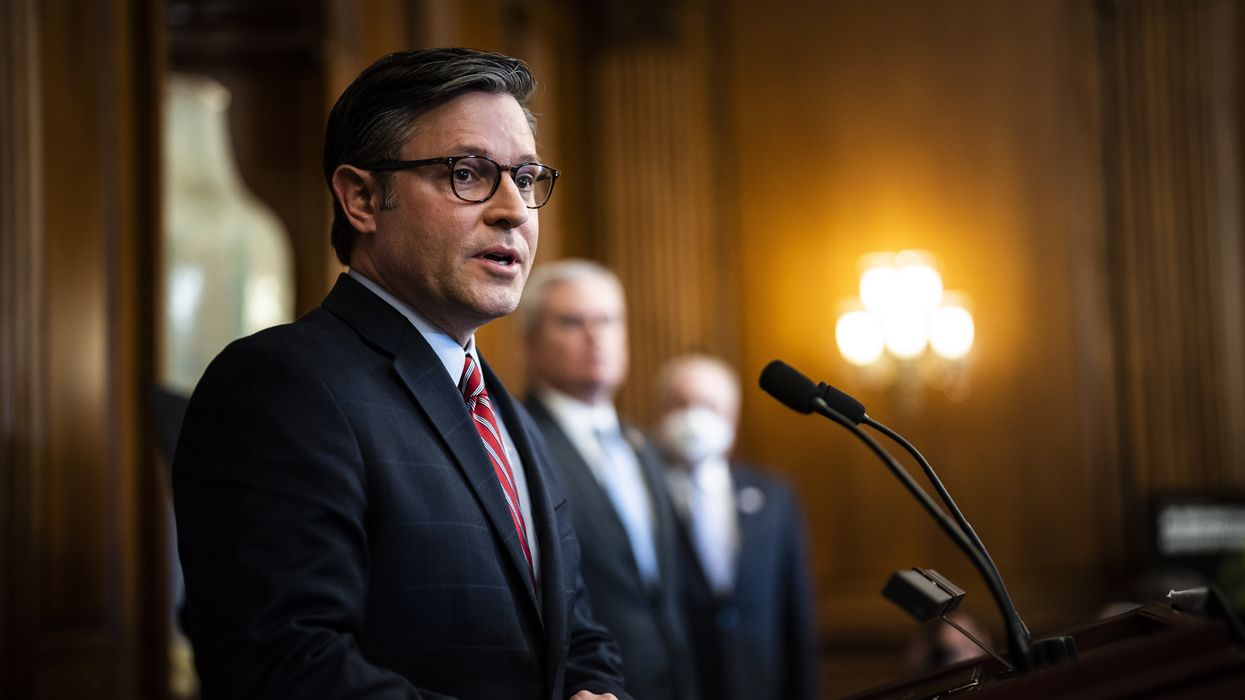Fine is the project manager for the Yale Program on Climate Change Communication and a Public Voices Fellow on the Climate Crisis.
When it comes to climate change, newly elected House Speaker Mike Johnson may be on the same page as many of his fellow Republican lawmakers, but his views are far from those of most of his constituents in Louisiana, as well as most Republican voters and 81 of Johnson’s Republican colleagues who make up the Conservative Climate Caucus.
According to the League of Conservation Voters, Johnson never voted for pro-environment legislation in 2022 while the American Energy Alliance gave him a 100 percent rating in 2022. This is not surprising as the oil and gas industry has provided more funding to Johnson over his political career than any other industry.
Yet Louisiana is impacted by climate change in real time. The state just had its hottest and third driest summer on record, creating prime conditions for 500 large fires in August alone, which is almost the yearly state average. Most adults in Louisiana understand that climate change is happening and that it’s affecting the weather, and they are worried about it.
The majority of Louisianans say Congress should do more to address climate change. Yet when Congress passed its most significant climate legislation to date, the Inflation Reduction Act, Johnson relabeled it the “Inflation Expansion Act” and tweeted that it would “send hundreds of billions of tax dollars to green energy slush funds.”
Support for the legislation is high across the country with 71 percent of American voters supporting the IRA, including 57 percent of liberal and moderate Republicans. Despite strong support for the meaure, one of the first actions in the House under Johnson’s leadership was to pass a bill cutting key pieces of the legislation. This is despite the fact that the IRA will bring $1.2 billion in investment and about one thousand new jobs to his home state for new major clean energy projects. Nationally, there is more investment in red states than in blue states thanks to the IRA.
In a 2017 town hall, Johnson claimed the climate is changing due to natural cycles in the atmosphere, not “because we drive SUVs.” Virtually all climate scientists disagree and only 28 percent of Americans agree with Johnson that climate change is mostly caused by natural changes in the environment. Those in the audience did not appear to be on the same page as Johnson either. Also, while Louisianans may indeed be driving SUVs, 74 percent of them support tax rebates for energy-efficient vehicles.
Unlike Johnson, many Republican voters and members of Congress want climate action. Twenty-seven percent of Republican voters are alarmed or concerned about climate change. They tend to be Republicans who are younger, female, moderates, people of color, or they live in suburban areas. Over the past 10 years, Republicans increasingly have said that global warming will harm people in the United States, with 64 percent of liberal and moderate Republicans and 32 percent of conservative Republicans currently holding this view.
Across party lines, from Louisiana to Los Angeles, the majority of people want a stable climate and support climate solutions. Our chances of successfully tackling climate change drop drastically with Mike Johnson as speaker of the House, given the power he exerts on the legislative process. If you, like most of the country, want cleaner air and a bright future for our kids, demand that our leaders in Congress listen to the will of the people, not lobbyist interests.



















